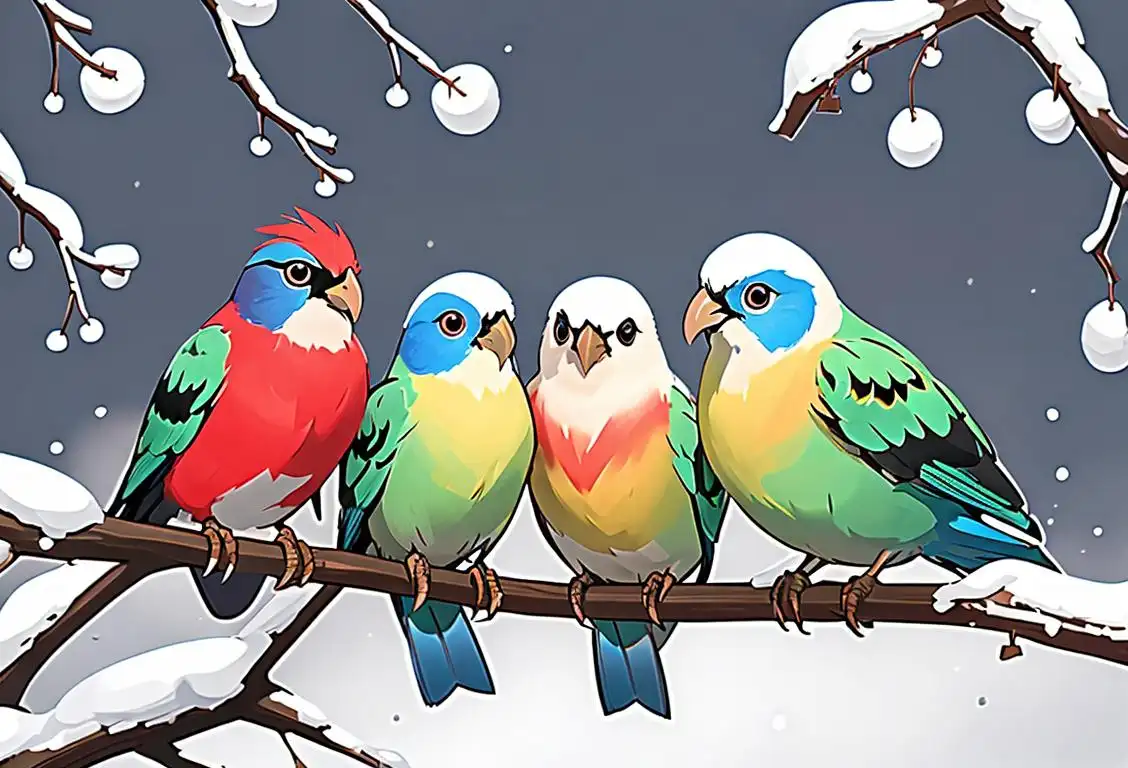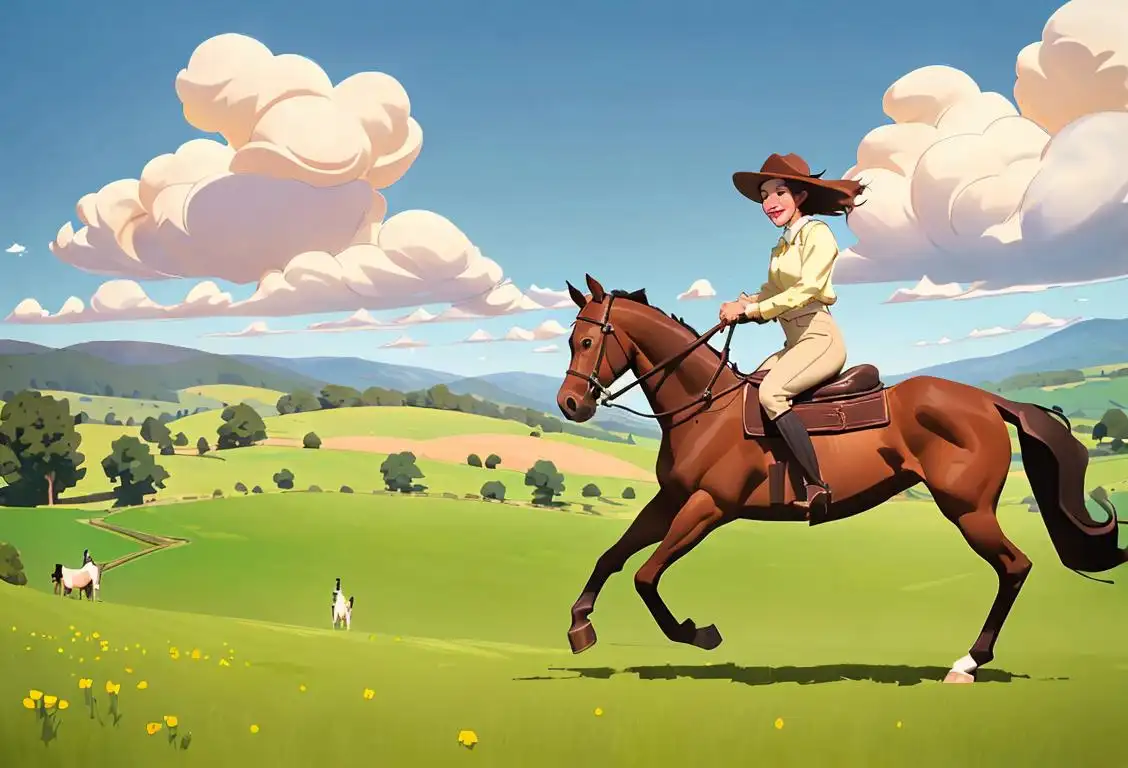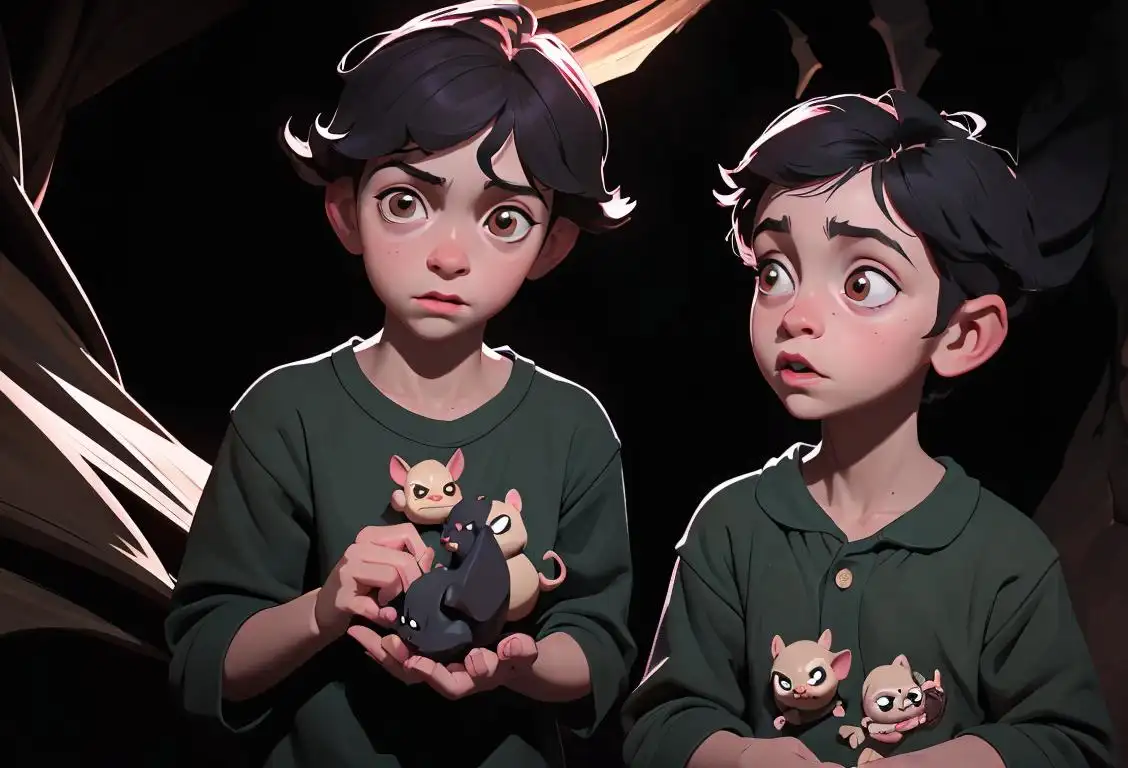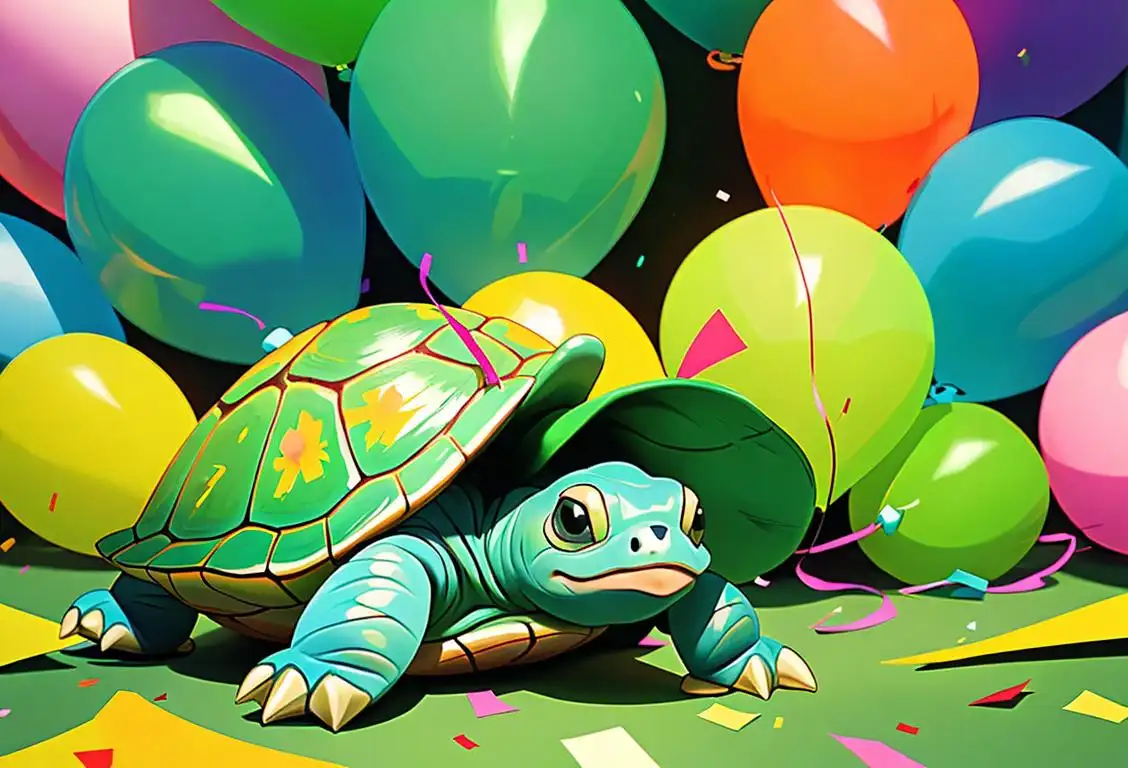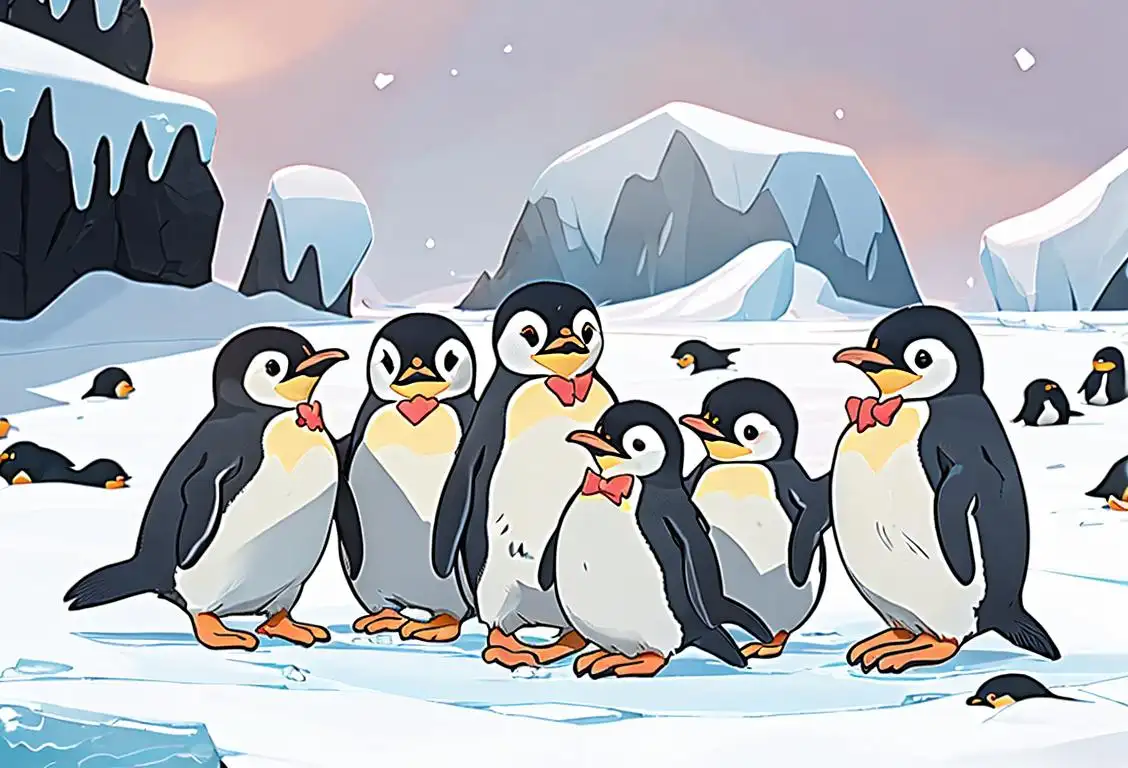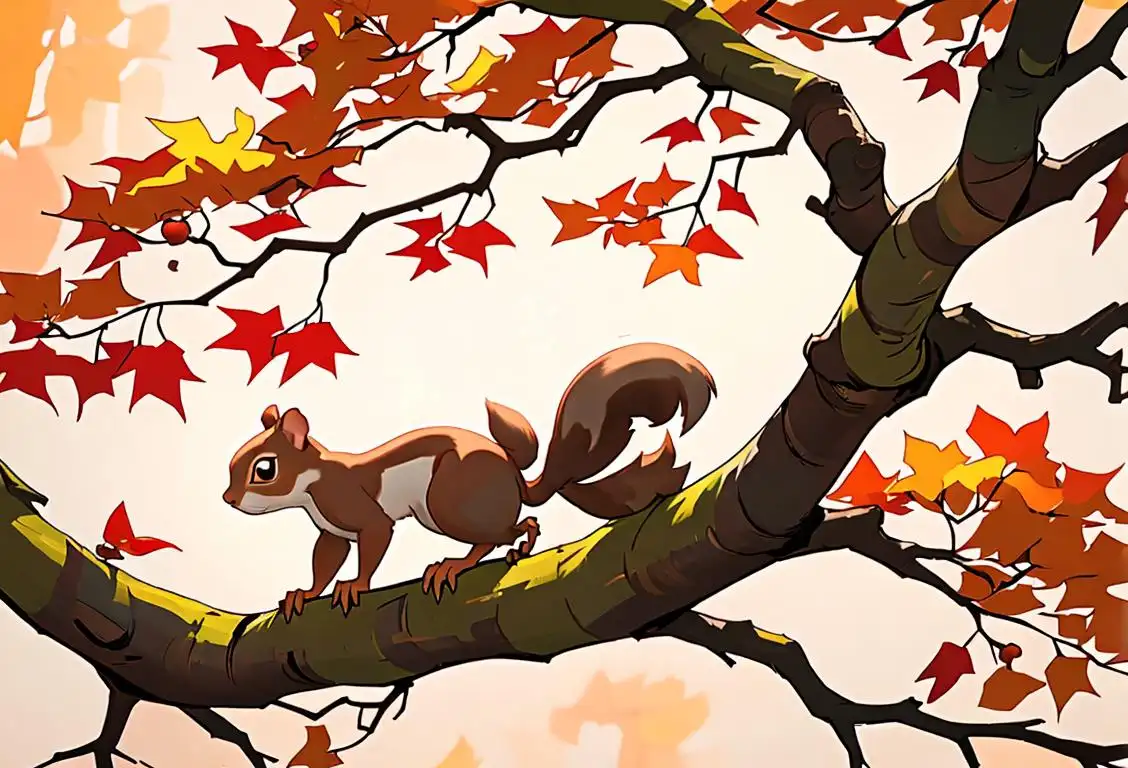National Opossum Day
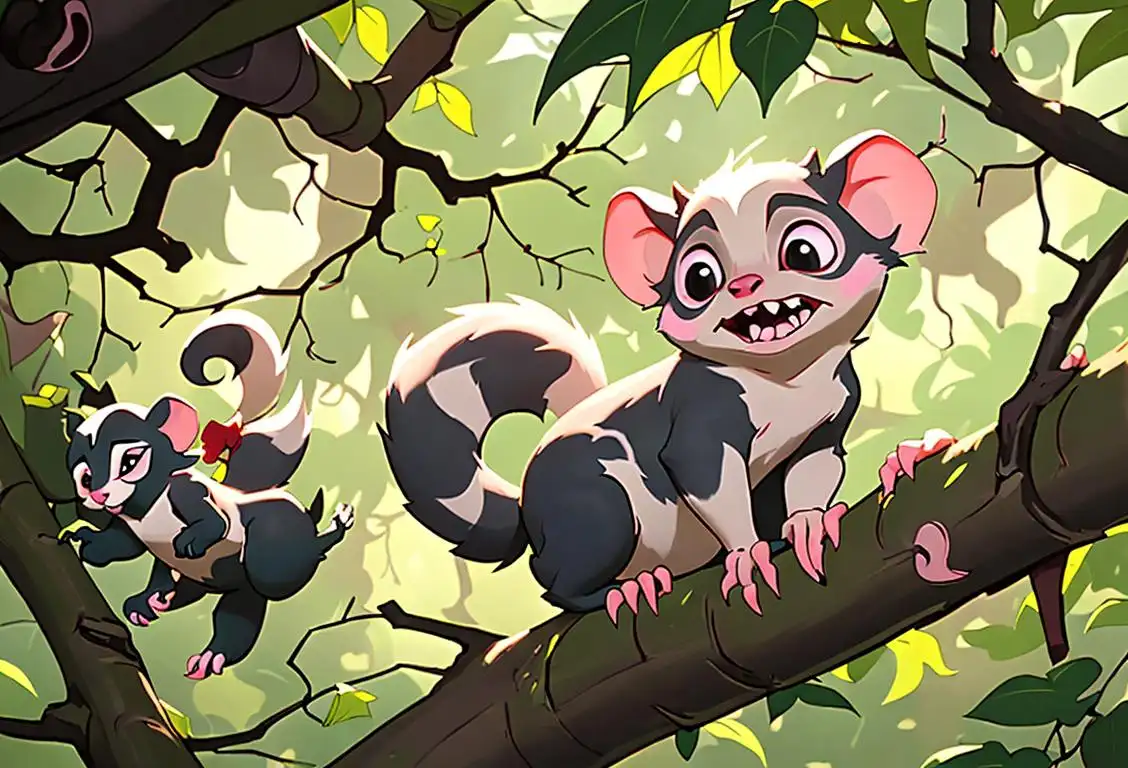
You might think opossums are just those creatures who like to play dead, but there's more to these marsupials than meets the eye. National Opossum Day is here to celebrate these remarkable animals with a tribute as unique as they are!
When is Opossum Day?
It's national opossum day on the 18th October.
The Lowdown on National Opossum Day
Believe it or not, there's a day dedicated to one of nature's most misunderstood creatures, the opossum. Despite being quintessential backyard critters, opossums often elicit a mix of fear and fascination. They're infamous for 'playing possum', a term for their uncanny ability to feign death to hoodwink predators. However, there's a lot more to these critters that makes them worth celebrating!
Our data indicates an interesting trend. National Opossum Day mentions reached an all-time high on October 18, 2020, with a whopping 61 mentions online. But what sparked this flurry of opossum appreciation? Could it have been a memorable opossum video that went viral? Or perhaps a newfound appreciation for these critters' role in our ecosystems? We may never know. However, we can certainly continue this trend of honouring our marsupial friends.
Tail Tale
Opossum aficionados often claim this creature as North America's only marsupial. While it's true that opossums are the only marsupials in North America, the rest of the marsupial family – including kangaroos and wallabies – might have a bone to pick with this statement. Nonetheless, opossums' prehensile tails - capable of grasping and wrapping around things like tree limbs - make them an interesting addition to the large marsupial family.
A Grin to Remember
Despite their disarmingly cute faces, opossums boast an impressive collection of 50 sharp teeth. This dental display often dissuades potential predators.
In Conclusion
Whether you fancy opossums or find them a tad eerie, National Opossum Day provides a unique opportunity to appreciate these cute and creepy critters. Let's lift our hats (carefully!) to these misunderstood marsupials and give them the recognition they deserve!
History behind the term 'Opossum'
1608
The First Encounter
The term 'opossum' was first encountered in 1608 by Captain John Smith, an English explorer, when he arrived in Virginia. He observed the native Powhatan people referring to a peculiar marsupial as 'opassum'. Captain Smith documented this observation in his writings and introduced the term to the English language.
1610
The Anglicization
In 1610, the term 'opassum' was Anglicized to 'opossum' by Captain George Percy, another English explorer who also visited Virginia. He used a slightly modified spelling to better fit the English language. This Anglicized version of the term gained popularity among English-speaking settlers in the New World.
1804
Scientific Classification
In 1804, the term 'opossum' was officially recognized in the field of taxonomic classification. French naturalist George Cuvier classified and described the marsupial, scientifically naming it 'Didelphis virginiana' but commonly referring to it as the Virginia opossum. This formal recognition solidified the usage of the term in zoological discussions.
1842
Widespread Usage
During the mid-19th century, the term 'opossum' became more commonly used and recognized. Various explorers, travelers, and naturalists extensively wrote about the unique marsupial, discussing its biology, behavior, and habitat. As English-language literature expanded, so did the dissemination and familiarity with the term 'opossum'.
20th Century
Pop Culture References
Throughout the 20th century, the term 'opossum' made its way into popular culture. From appearing in literary works like the classic children's book 'Possum Magic' by Mem Fox to featuring in animated films such as 'Ice Age', these references further entrenched the term 'opossum' in the minds of people worldwide. Today, the term is widely understood and associated with the unique marsupials found in the Americas.
Did you know?
Unlike many animals, opossums have an incredible immune system and show partial or total immunity to most snake venoms!Tagged
fun animals opossums marsupialsFirst identified
17th October 2017Most mentioned on
18th October 2020Total mentions
61Other days
Opossum Day
Badger Day
Bird Day
Horse Day
Bat Appreciation Day
Turtle Day
Penguin Day
Squirrel Appreciation Day
Dog Dog Day
Pupper Day

